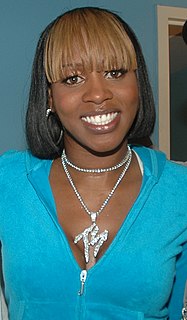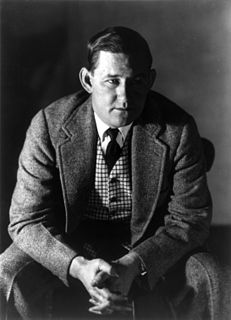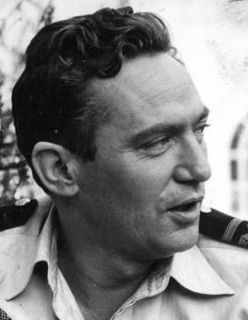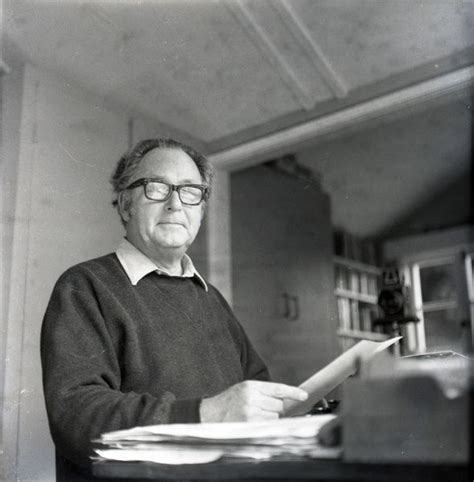A Quote by Malcolm Muggeridge
A ready means of being cherished by the English is to adopt the simple expedient of living a long time. I have little doubt that if, say, Oscar Wilde had lived into his nineties, instead of dying in his forties, he would have been considered a benign, distinguished figure suitable to preside at a school prize-giving or to instruct and exhort scout masters at their jamborees. He might even have been knighted.
Related Quotes
He was about to go home, about to return to the place where he had had a family. It was in Godric’s Hollow that, but for Voldemort, he would have grown up and spent every school holiday. He could have invited friends to his house. . . . He might even have had brothers and sisters. . . . It would have been his mother who had made his seventeenth birthday cake. The life he had lost had hardly ever seemed so real to him as at this moment, when he knew he was about to see the place where it had been taken from him.
I'm kinda secretive, and I can't even say secretive because of my son. He's the type, like, he doesn't let his friends know who his mom is or his stepdad. He doesn't like me going to his school. If he gets into trouble at school, he's, like, dying. He's very low-key with it. He's always been like that since he was born.
In the old days it would have been a relatively simple matter to have checked Hitler's territorial ambitions. All you'd have needed would have been the 1914 combination of Britain, France and Russia. Indeed, if such an alliance had acted decisively to defend Czechoslovakia in 1938, Hitler might even have been overthrown by his own military. But it was not to be.
Do what he will, he [the profane man] is an inheritor. He cannot utterly abolish his past, since he himself is a product of his past. He forms himself by a series of denials and refusals, but he continues to be haunted by the realities that he has refused and denied. To acquire a world of his own, he has desacralized the world in which his ancestors lived; but to do so he has been obliged to adopt an earlier type of behavior, and that behavior is still emotionally present in him, in one form or another, ready to be reactualized in his deepest being.
But his pantheon would have survived. (Kat) Would it? Fate is never that simple. It doesn’t go in a straight line, and the more you try to circumvent it, the worse you make it on yourself. Fate will not be denied. Sin would have lost his powers by another means, at another time and place. And whoever took them then might have killed him. Had he died, the world would have ended a long time ago or the gallu would have run free and taken over. There are infinite possibilities. (Acheron)
There is little doubt that, until 1846 when he helped to engineer the resignation of Robert Peel, Disraeli was driven by an ambition to make his mark rather than by any consistent political purpose, and that his attacks on Peel would have not have been so mounted had he been given in 1841 the office for which he had asked.
For weeks past he had been making ready for this moment, and it had never crossed his mind that anything would be needed except courage. The actual writing would be easy. All he had to do was to transfer to paper the interminable restless monologue that had been running inside his head, literally for years.
My sophomore English teacher encouraged me to write for the school paper, and that's what got me started. Suddenly it struck me that being a writer could be a romantic and adventurous position. Previously, I had thought I would be a tennis pro, giving lessons at a local club. I thought that would be a good life, and it might have been.
My mother is Turtle Mountain Chippewa, and she lived on her home reservation. My father taught there. He had just been discharged from the Air Force. He went to school on the GI Bill and got his teaching credentials. He is adventurous - he worked his way through Alaska at age seventeen and paid for his living expenses by winning at the poker table.
He realized now that a lot of the problem had been his own mind, which was usually moving at a speed ten or twenty times that of his classmates. They had thought him strange, weird, or even suicidal, depending on the escapade in question, but maybe it had been a simple case of mental overdrive-if anything about being in constant mental overdrive was simple. Anyway, it was the sort of thing you got under control after a while-you got it under control or you found outlets for it.
Can I tell you something? It wasn't so bad. Not so bad at all right then, me scowling at the dirt, James in his bed, the way it always always was. Look, if that's all that happened, if his dying just meant that I would be waiting for him to say something instead of listening to him say something, it would have been fine.

































